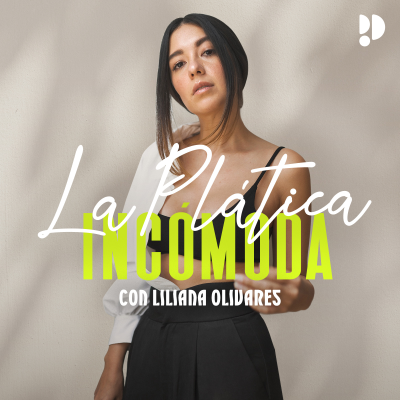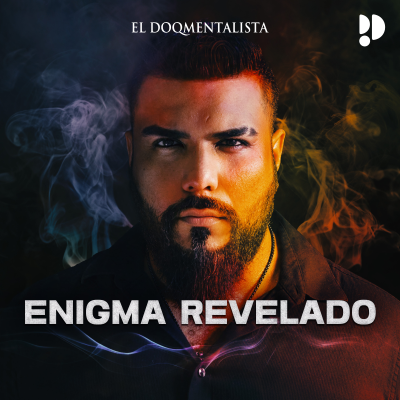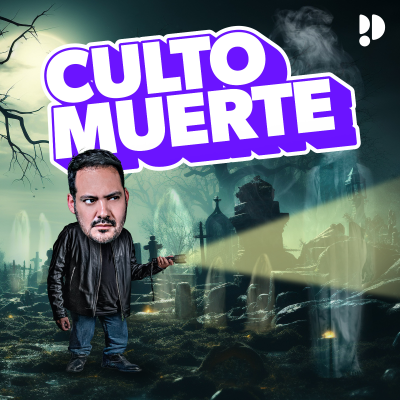
Silver Lining for Learning
English
Technology & science
Limited Offer
2 months for 19 kr.
Then 99 kr. / monthCancel anytime.
- 20 hours of audiobooks / month
- Podcasts only on Podimo
- All free podcasts
About Silver Lining for Learning
Silver Lining for Learning (https://silverliningforlearning.org) is an ongoing conversation on the future of learning with educators and education leaders from across the globe. Hosted by Chris Dede, Curt Bonk, Punya Mishra & Yong Zhao, these conversations began under the “dark cloud” of the COVID19 crisis and continue today. We see these conversations as space to discuss the creation of equitable, humanistic and sustainable learning ecosystems that meet the needs of all learners. These conversations are hosted live on YouTube every Saturday (typically 5:30 PM Eastern US time).
All episodes
264 episodesPartners in a Sandbox: Interdisciplinary Teams Addressing Educational Challenges and Possibilities
Ever play in a sandbox? If so, was it fun. In Episode #264 we will hear from Patricia Mangeol who is the Director of Research and Digital Learning Initiatives at Sandbox Inc., a Canadian agency focused on helping public and nonprofit organizations achieve their education and outreach objectives. Also on this episode will be Isaac Kwakye from the Washington Student Achievement Council (WSAC) which is a Washington State’s higher education agency. Together they will discuss many things including new approaches to supporting student learning in a rapidly changing digital and social context. This conversation will include how we need to think differently -- at both policy and behavioural levels -- about motivating students, and how innovative partnerships between policymakers, educational institutions, and creative/tech/learning design partners like Sandbox can help drive more effective outreach and support. Patricia and Isaac will also discuss the *Changing the Narrative* project with Central Washington University, alongside other work that they each are involved in -- particularly around leveraging AI for learner support and designing learning for AI-shaped labour markets. Overall, this session will offer a broad lens grounded in the notion that understanding student behaviours, motivations, and needs is central to improving access, equity, and social mobility." In this epsiode, we will explore how Sandbox and Sandbox Labs—the research and innovation arm of Sandbox—partners with institutions and policymakers to prototype, test, and scale new approaches to student engagement and digital learning. We will hear how the Washington Student Achievement Council is driving statewide innovation – and the challenges and opportunities of adaptive leadership needed to leverage the benefits of new technology like AI while countering the risks. We’ll close by discussing some of the most serious challenges higher education institutions are facing today. Let's turn to Sandbox Labs for a moment. Sandbox Labs is promoted as a research and innovation team that has a distinct social mission. They are the experimental arm of Sandbox Inc. [https://www.sandboxinc.ca/] that initiates “new projects and collaborations with partners around the world to analyze individual and social challenges and conceptualize solutions.” This approach most definitely requires a complex set of multidisciplinary skills for conducting research and associated analyses as well as “developing actionable recommendations,” and, perhaps, most importantly, “designing new learning experiences and human-first, user-focused technology tools.” It is worth noting that publications and research reports emanating out of Sandbox are developed in collaboration with their project partners (which Isaac and Patricia will speak to during the Episode #264 of SLL). These research reports attempt to offer documentation on the process that the teams engaged in as well as the research findings and ensuing recommendations. What we shall discover during this episode is that Sandbox’s ultimate goal is to provide innovative solutions that respond “to the real-world challenges and complex contexts of the people and organizations we support.” Patricia Mangeol Patricia Mangeol is the Director of Research and Digital Learning Initiatives at Sandbox Inc., a Canadian agency focused on helping public and nonprofit organizations achieve their education and outreach objectives. She leads the work of Sandbox Labs, the company’s R&D arm, forging partnerships in North America and Europe to leverage research methodologies and technological innovations to advance education and learning. Previously, Patricia led higher education research and policy projects at the Organisation for Economic Cooperation and Development (OECD) and was a policymaker in the Ontario government (Canada). She advised governments in Canada, France, Hungary, Portugal, Slovakia, and the United States on policies spanning higher education, the labour market, immigration and digital education. Alongside her work at Sandbox, Patricia is conducting doctoral research within the Open University of Catalonia’s Faculty of Psychology and Educational Sciences on how higher education institutions and leaders respond to AI-driven labour market changes. (Contact via LinkedIn [https://www.linkedin.com/in/patricia-mangeol-1543598/] or email). [patricia@sandboxinc.ca] Sandbox: https://www.sandboxinc.ca/about [https://www.sandboxinc.ca/about] https://www.sandboxinc.ca/ [https://www.sandboxinc.ca/] Isaac Kwakye As Deputy Executive Director of the Washington Student Achievement Council (WSAC), Washington State’s higher education agency, Isaac Kwakye champions the advancement of education and economic opportunity across the state. He supports the Executive Director in leading the agency’s management and leadership team, overseeing daily operations, and stewarding critical resources and personnel toward educational success for all Washingtonians. In this capacity, Isaac drives the implementation of WSAC’s strategic education policy agenda, ensuring alignment with the Council’s vision for an equitable and prosperous Washington. His leadership transfers strategic action plans into impactful outcomes while strengthening executive governance to advance the agency’s financial and operational goals. Through this work, Isaac helps position Washingtonians for long-term success by expanding access to high-quality postsecondary pathways and fostering statewide economic mobility. Contact via: LinkedIn [https://www.linkedin.com/in/isaac-k-9826bb185/] or Email [isaack@wsac.wa.gov]. Join the conversation at silverliningforlearning.org [https://silverliningforlearning.org ]
How Is AI Used in Schools and What New Directions Are Needed: A Discussion about the Brookings AI Report
On January 14, a research report on AI uses in schools was released by Brookings, This report, entitled A new direction for students in an AI world: Prosper, prepare, protect [https://www.brookings.edu/articles/a-new-direction-for-students-in-an-ai-world-prosper-prepare-protect/], focused on Gen AI and students learning and development. It has an interesting conclusion: "At this point in its trajectory, the risks of utilizing generative AI in children’s education overshadow its benefits." It says: > After interviews, focus groups, and consultations with over 500 students, teachers, parents, education leaders, and technologists across 50 countries, a close review of over 400 studies, and a Delphi panel, we find that at this point in its trajectory, the risks of utilizing generative AI in children’s education overshadow its benefits. This is largely because the risks of AI differ in nature from its benefits—that is, these risks undermine children’s foundational development—and may prevent the benefits from being realized. A lot of the risks seemed to come from “wide” AI use that includes unscaffolded open ended discussions students having with frontier model chatbots that occur in and out of school time. In our next episode, we will have a discussion with one of the authors of the report, Dr. Rebecca Winthrop, about the findings and possible future directions of AI in schools. Rebecca Winthrop is a senior fellow and director of the Center for Universal Education at the Brookings Institution. Her research focuses on education globally, with special attention to the skills young people need to thrive in work, life, and as constructive citizens. Winthrop works to promote quality and relevant education, including exploring how education innovations and family and community engagement can be harnessed to leapfrog progress, particularly for the most marginalized children and youth. She advises governments, international institutions, foundations, civil society organizations, and corporations on education issues. She currently serves as a board member and adviser for a number of global education organizations and lectures at Georgetown University. She currently leads the Brookings Global Task Force on AI in Education and co-leads the Family Engagement in Education Network. She has served as the chair of the U.N. Secretary General’s Global Education First Initiative’s Technical Advisory Group, helping to frame an education vision that focuses on access, quality, and global citizenship. With UNESCO Institute of Statistics, she co-led the Learning Metrics Task Force that involved inputs from education professionals in over 100 countries to identify how to measure what matters in education systems. She has been a member of numerous other global education initiatives including the G-20 Education Task Force, the Mastercard Foundation’s Youth Learning Advisory Committee, the World Economic Forum’s Global Agenda Councils on education, and an education adviser to the Clinton Global Initiative. Prior to joining the Brookings Institution in June 2009, Winthrop spent 15 years working in the field of education for displaced and migrant communities. As the head of education for the International Rescue Committee, she was responsible for the organization’s education work in over 20 conflict-affected countries. She has been actively involved in developing the evidence base around and global attention to education in the developing world. In her prior position, she helped develop global policy for the education in emergencies field, especially around the development of global minimum standards for education in contexts of armed conflict and state fragility. Winthrop has authored numerous articles, reports, books, and book chapters, including most recently “The Disengaged Teen: Helping Kids Learn Better, Feel Better, and Live Better” with her co-author, award-winning journalist Jenny Anderson. She has also authored “Transforming Education Systems: Why, What, and How” with Hon. Minister David Sengeh; “Collaborating to Transform and Improve Education Systems: A Playbook for Family-School Engagement” with Adam Barton, Masha Ershadi, and Lauren Ziegler; “Leapfrogging Inequality: Remaking Education to Help Young People Thrive” with Adam Barton and Eileen McGivney; “Beyond Reopening Schools: How Education Can Emerge Stronger Than Before COVID-19” with Emiliana Vegas; “Addressing Education Inequality with a Next Generation of Community Schools: A Blueprint for Mayors, States, and the Federal Government” with the Brookings Task Force on Next Generation Community Schools; and “The Need for Civic Education in 21st Century Schools.” Her work has been featured in the BBC, ABC News, CNN, NPR, the Wall Street Journal, the Washington Post, the New York Times, Newsweek, Time Ideas, NPR, the Economist, the Financial Times, the Guardian, Bloomberg News, Glamour, and CSPAN, among others. She was educated at Columbia University Teachers College (Ph.D., 2008); Columbia University School of International and Public Affairs (M.A., 2001); and Swarthmore College, (B.A., 1996). Join the conversation at silverliningforlearning.org [https://silverliningforlearning.org ]
What Can We Learn about Education? Lessons from Over a Decade of Video Interviews with Education Thought Leaders
If you want to know what some of the best education thinkers think about the state of education, educational changes, effective teaching and learning, equity and excellence, new technologies etc., one of the places is The Brainwaves Video Anthology [https://www.youtube.com/@TheBrainwavesChannel] on YouTube created by Bob Greenberg. Over the past 10 years, Bob has conducted more than 2,500 video interviews with some of the leading thinkers such as Sir Ken Robinson, Noam Chomsky, Dr. Anthony Fauci, Supreme Court Justice Stephen Breyer, Herb Kohl, Jonathan Kozol, Linda Darling Hammond, Ken Burns, Henry Louis Gates Jr., Diane Ravitch, and Jerome Bruner. The anthology has more than 50,000 subscribers and has been viewed more than 8 million times. In this episode, we plan to have a discussion with Bob Greenberg to learn what he has learned from these interviews and what motivated him to carry on a project for so long. ******* Bob Greenberg has spent 30 years as a public school teacher, 15 years in Stamford, CT and 15 years in Bridgeport, CT. In between he spent 15 years as a full time professional magician working trade shows and hospitality events for corporate clients including IBM, 3M and CIGNA. The Bridgeport Public Education Fund recognized him as an Outstanding Teacher in 2007. The Connecticut Association of School Librarians honored him with the 2012 Pellerin Classroom Teacher Award, for “collaborating to advance student learning”. His project “Bringing Books to Life” used stop-motion animation and green screen video. He has presented this project at ISTE Philadelphia and CECA Hartford, Tech Forum New York and BLC Boston. He was twice invited to bring his students to Tech Expo in Hartford where they shared their work with the State Legislature and met with the Governor. He also wrote the technology presentation that helped his school become a Lone Pine Award winner. Bob’s classroom had no walls, his students, known as “The Brainwaves”, had their own class blog where they shared their work and communicated with classes around the world. To prepare his students for the future, where they will live in a global economy, his class participated in global project based learning. Bob’s second and third graders Skyped with students in: Argentina, Canada, Guatemala, New Zealand, Indonesia, Bulgaria, Russia as well as the USA. He helped organize a Global Newspaper with contributions from children from seven countries. He also helped organize a global video project for the International Day of Peace. Drawing on his contacts, he enlisted 26 classes from 18 countries from every continent except Antarctica. While teaching he posted over 150 student videos SchoolTube. Since retiring in June 2013 he has traveled the country filming the thinkers and doers in Education; including Sir Ken Robinson, Noam Chomsky, Dr. Anthony Fauci, Supreme Court Justice Stephen Bryer, Herb Kohl, Jonathan Kozol, Linda Darling Hammond, Ken Burns, Henry Louis Gates Jr., Diane Ravitch, Yong Zhao and Jerome Bruner. His YouTube Channel, The Brainwaves Video Anthology, is a growing collection of more than 2,500 five-minute bite sized video lectures from thought leaders at Harvard, Yale, Princeton, UCLA, MIT, Stanford and more. It has more than 6 million views in 195 countries. Join the conversation at silverliningforlearning.org [https://silverliningforlearning.org ]
Why Al in Education Needs Standards Interoperability, Context, & Learner Impact
Why AI in Education Needs Standards: Interoperability, Context, and Learner Impact with Michael Feldstein, 1EdTech Chief Strategy Officer; Blaine Helmick, 1EdTech Vice President of Software; and Suzanne Carbonaro, 1EdTech Vice President of Postsecondary Education and Workforce In this episode of Silver Lining for Learning, we explore how 1EdTech Consortium, a nonprofit, neutral, trusted convener, is working at the intersection of interoperability, data, and artificial intelligence to help education systems better serve its learners with technology. The conversation introduces what 1EdTech is, who it convenes, and why shared interoperability standards—such as Learning Tools Interoperability (LTI)®, learning analytics frameworks, and competency standards like Competencies and Academic Standard Exchange® (CASE®)—are foundational to a connected digital learning ecosystem. Through concrete examples, the episode shows how interoperability standards reduce complexity for institutions and their technology providers while enabling more consistent, meaningful access to learning data. Artificial Intelligence is an example of a technology in which context and structure matter if AI is to positively impact teaching and learning. Panelists examine how interoperable data pipelines make it possible to use AI for personalization, analytics, and learner-centered insights—without sacrificing trust, transparency, or human judgment. By highlighting 1EdTech’s emerging work in areas like AI-enabled learning analytics and outcomes tracking, the episode emphasizes the opportunity for institutions and technology providers to collaborate in ways that unlock data for learning and research, while keeping learners and educators firmly at the center. Readings and Resources: https://www.1edtech.org/program/labs [https://www.1edtech.org/program/labs] https://www.imsglobal.org/resource/AI-Generated_Content_Best_Practices/v1p0 [https://www.imsglobal.org/resource/AI-Generated_Content_Best_Practices/v1p0] https://www.1edtech.org/workstream/analytics [https://www.1edtech.org/workstream/analytics] https://www.1edtech.org/standards/ai-rubric [https://www.1edtech.org/standards/ai-rubric] https://www.1edtech.org/about/hed [https://www.1edtech.org/about/hed] Episode Guests Michael Feldstein is the Chief Strategy Officer of 1EdTech. He helps drive the strategic vision and implementation of an open, trusted and innovative ecosystem of interoperable products and digital credentials by identifying needs and collaboratively developing solutions to increase learning impact with the 1EdTech community. Michael brings more than 30 years of educational technology experience to the organization, most recently as CEO of the Empirical Educator Project, Co-Founder of Argos Education, and Chief Accountability Officer of e-Literate. Blaine Helmick, Vice President of Software at 1EdTech, is an accomplished education technology product director with career expertise creating innovative products, services, and content that reach new markets, bring solid ROI, and add tangible value. Combine a BA in Information Systems and an MA in Instructional Design to conceptualize enterprise technology solutions and drive successful development teams. Contribute technology and educational industry knowledge and collaborate with cross-functional teams to synthesize solutions and deliver emerging technologies. Suzanne Carbonaro is the vice president for postsecondary education and workforce programs at 1EdTech. In this role she serves as liaison across the education sector to enable discussion and collaboration that helps to foster the use of interoperability standards across digital ecosystems, and their external applications. Suzanne spent much of her career in higher education as a leader of curriculum and assessment, instruction and student success, institutional effectiveness and planning, and accreditation. Over the last five years, Suzanne served as a subject matter expert for two edtech companies and supported the growth of interoperability standards, strategic planning processes, and the Comprehensive Learner Record (CLR) across the colleges and universities she served. Suzanne’s research interests and publications are in the areas of digital credentials and CLR, high-impact practices, co-curricular assessment, and integrated strategic planning. Previously, Suzanne served as Director of Assessment at the Philadelphia College of Pharmacy and Rider University’s College of Education and Human Services. Through her leadership, these institutions were re-accredited and received recognition for their assessment practices, including the American Association of Colleges of Pharmacy 2019 Award for Excellence in Assessment. Suzanne managed New Jersey Department of Education and Janssen Pharmaceuticals grants to advance STEM Education, teacher leadership, recruitment, and retention in NJ public schools. Suzanne currently serves on the Grand Challenges in Assessment, a national collaboration of ten organizations and over 400 higher ed leaders seeking to advance assessment of student learning through discourse, research, and professional learning. Join the conversation at silverliningforlearning.org [https://silverliningforlearning.org ]
Just a Football Powerhouse? No, Indiana University is also an Online Learning Dynamo
It has been a couple of years since the team from Silver Lining for Learning (SLL) explored the status of online learning. In Episode #260 of SLL, we will hear about the targeted growth of online learning at Indiana University (IU) across eight campuses; including the flagship campus in Bloomington. In the state of Indiana, only Ivy Tech Community College enrolls more online students (over 12,000) than IU at around 10,000. The annual growth has been brisk at around 12 percent per year involving over 200 different programs, around 25 percent of which are collaborative in nature across all campuses and the rest are individual on a single campus. More information is available about the collaborative approach: “IU Online: A Collaborative Model for Online Education at Indiana University” [https://teachingonline.iu.edu/about/staff/collaborative_model.html?utm_source=onedtech.philhillaa.com&utm_medium=referral&utm_campaign=the-unsung-builders-of-online-learning-iu-online] and “Moving Forward 2.0: IU Online Implementation Plan.” [https://teachingonline.iu.edu/about/staff/moving_forward_2.0.html?utm_source=onedtech.philhillaa.com&utm_medium=referral&utm_campaign=the-unsung-builders-of-online-learning-iu-online]In this episode of SLL, Dr. Chris Foley, Associate Vice President and Director of Online Learning at IU will detail recent trends in online learning at IU and outline the university targets and his predictions of the future. As he observes, 'Expanding Access: Higher education is a life-changing experience for most students. It’s not just about imparting knowledge. It brings personal growth, opens doors, and grows self-confidence. The more students who can experience this, the better . . . for them and for everyone." By the end of this episode, you will realize that Indiana University has not just become a major college football powerhouse but is also now an online learning dynamo. Chris Foley, Associate Vice President, IU Online, Department: Office of Online Education, cfoley@iu.edu [cfoley@iu.edu] * Homepage: https://rcoe.iu.edu/about/leadership/foley-chris.html [https://rcoe.iu.edu/about/leadership/foley-chris.html] * Teaching Online at IU: https://teachingonline.iu.edu/about/staff/foley-chris.html [https://teachingonline.iu.edu/about/staff/foley-chris.html] * LinkedIn: https://www.linkedin.com/in/chris-foley-7b629619/ [https://www.linkedin.com/in/chris-foley-7b629619/] Chris J. Foley is associate vice president and director of online education for IU. He leads the development and implementation of online programs across IU’s seven campuses, servicing 30,000 students involved in online education. In addition, he is an adjunct assistant professor of organizational leadership at IU Indianapolis and teaches graduate courses in leadership, organization change and ethics. Foley has served IU for more than 20 years; before his current role, he worked in admissions and enrollment management at both IU Bloomington and IU Indianapolis. He has presented and published extensively on enrollment management, marketing and recruitment. Mark Baer joined the IU Online team in May 2024 as Interim Assistant Vice President for Online Academic Affairs and transitioned to Assistant Vice President of Online Academic Programs in October 2025. In this role, Baer oversees new online program development across Indiana University and leads a team that supports proactive management of existing online and hybrid collaborative programs, including curriculum evolution and assessment support. Since stepping into this leadership position, Baer has expanded collaborative partnerships across an increasingly interconnected university, fostering relationships that enhance program quality and delivery. Baer is an Associate Professor of Performing Arts with tenure at IU Northwest, bringing a strong faculty perspective to his administrative work. With a robust record of faculty leadership, Baer served as President of the IU Northwest Faculty Organization from 2020 to 2023 and has long contributed to intercampus collaboration through the University Faculty Council and Regional Faculty Caucus. He holds an MFA in Theatre Direction from Illinois State University and a BS in International Business and Theatre from the University of Findlay. More information on Mark [https://rcoe.iu.edu/about/leadership/baer-mark.html] can be found at: https://rcoe.iu.edu/about/leadership/baer-mark.html Whitnie Powell was appointed Assistant Vice President for Enrollment Management and Student Services in November 2023, following three successful years as the Director of Enrollment Management and Student Services. In her current role, Whitnie leads the Enrollment Management, Online Student Services, Online Undergraduate Advising, Online Graduate Support, and EM&SS Operational Systems teams within IU Online. Together with her team, she collaborates closely with all IU campuses and University Administration units to create a seamless and supportive online student experience, enhance operational efficiencies, drive online enrollment growth, and positively impact student persistence, retention, and completion. Before joining IU, Whitnie served as the Senior Associate Director for Graduate Studies and Adult Learning at the University of Indianapolis, where she developed and led a centralized recruitment and enrollment team serving graduate, adult, and online students. Her leadership roles also include serving as Enrollment Manager at Indiana Wesleyan University, where she oversaw recruitment, enrollment, and student services for three central Indiana regional campuses. At Chamberlain College of Nursing, Whitnie was the Interim Director of Admissions, where she led the development of recruitment strategy, admissions processes, and student services during the initial startup of the Indianapolis campus.Whitnie's career also includes roles as a high school recruiter, online admissions counselor, online student services coordinator, intake coordinator, and student admissions recruiter. She earned both her B.S. in Psychology and M.S. in Management from the University of Indianapolis and is currently pursuing her Ph.D. in Educational Administration with a focus on Higher Education Leadership at Indiana State University. Whitnie is actively involved in councils, steering committees, and task forces across IU, representing IU Online. She has earned national recognition for the IU Online Enrollment Management and Student Services model through conference presentations and national association awards, including being honored with the UPCEA 2024 Dorothy Durkin Strategic Innovation Award. More information on Whitnie [https://rcoe.iu.edu/about/leadership/powell-whitnie.html] can be found at: https://rcoe.iu.edu/about/leadership/powell-whitnie.html Join the conversation at silverliningforlearning.org [https://silverliningforlearning.org ]
Choose your subscription
Limited Offer
Premium
20 hours of audiobooks
Podcasts only on Podimo
All free podcasts
Cancel anytime
2 months for 19 kr.
Then 99 kr. / month
Premium Plus
Unlimited audiobooks
Podcasts only on Podimo
All free podcasts
Cancel anytime
Start 7 days free trial
Then 129 kr. / month
2 months for 19 kr. Then 99 kr. / month. Cancel anytime.





































